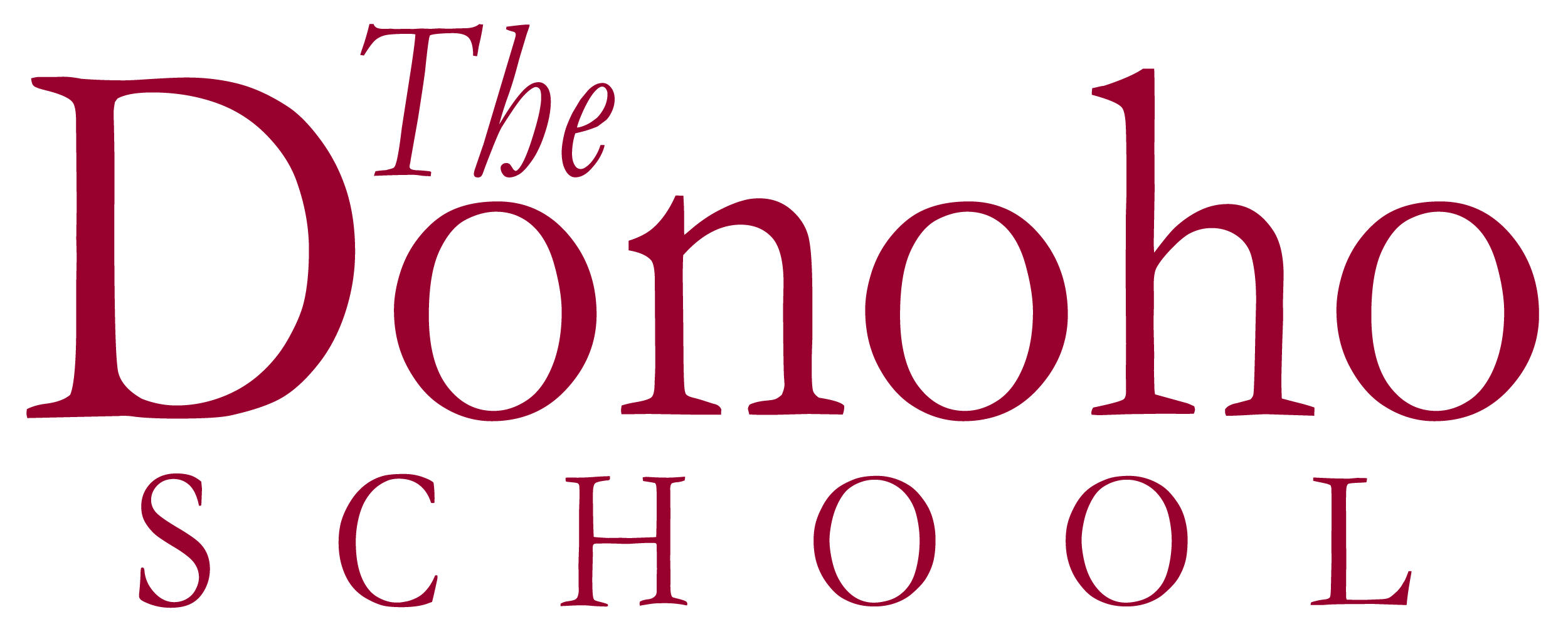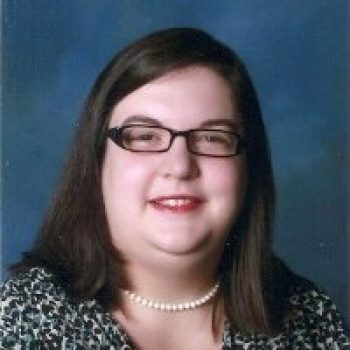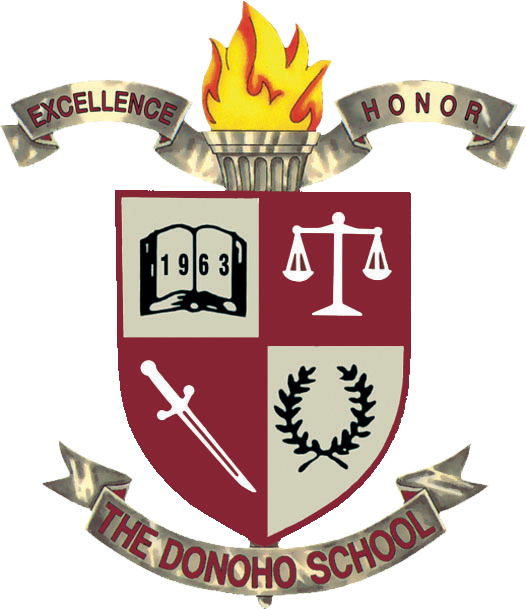What sets The Donoho School apart is our faculty. These individuals provide the living curriculum for Donoho students in and out of the classroom. Each week we will feature a member of the faculty and his or her story. We hope you will enjoy getting to know our faculty members throughout the school year and will stop by each week to read the latest Donoho Story!
Donoho Stories: Dr. Elizabeth Strong
What do you teach at The Donoho School?
Teaches K-4 and high school French and 8th grade Humanities.
What do you love about The Donoho School?
Our students truly are well-rounded people. I can’t think of a single student who is not actively involved in some aspect of the school besides academics, and many of them are committed to a variety of different activities. I believe that every single student here wants to succeed, both inside the classroom and out, and that as diverse as their personal beliefs might be, they each value and respect what this school is offering them both as an educational institution and as a community with a deep passion for instilling values.
Why do you like teaching at The Donoho School? What motivated you to become a teacher at The Donoho School?
The K-12 language classes definitely piqued my interest in this school, and it also didn’t hurt that my grandparents used to live in Anniston! (I’m originally from Texas, but my dad’s family has lived in Huntsville my whole life, except for a brief transfer to Anniston in 1990-1991). I like teaching here because I have the freedom to be a professional. I’m allowed to take what I know and explore how to make it work for our students in my classrooms, and when things don’t work, I’m free to make changes. When you work in a large public school district or university, there can sometimes be so much concern about uniformity and making sure that all students get offered the same things that teachers lose that freedom to adapt the content and pacing of their classes. I also don’t think I have ever felt that I could do my job better if only I had access to something that I don’t have. The resources I need to be successful here are always available, from technology to professional development opportunities in my content area to supportive colleagues, and I don’t think there’s a single teacher here who takes that for granted.
What is a unique experience, talent or interest that you bring to your classroom to help shape the learning experience of your students?
I have a doctorate in linguistics, and while I think people assume there are certain obvious advantages to that in terms of what I know about what I teach, I think the most surprisingly useful aspect of my education has been my ability to help students begin to see the relevance of things they are not necessarily interested in. When you think about languages, you typically think about how they are used in literature, art, music, and history. You don’t think about statistics or acoustics or neurology, and I certainly didn’t think about those things before starting graduate school, but knowing about those areas is also integral to being able to do research in linguistics. Before graduate school I thought of myself as somebody who was bad at and didn’t like math and science, and languages and the arts were my escape from that. Surprisingly, though, when you turn math into evaluating whether a linguistic hypothesis is statistically significant, and turn physics into determining the place of articulation of a sound via its frequencies, and turn biology into understanding how a stroke in a certain part of the brain affects what kind of communicative difficulties an aphasic patient ends up with, all of those things become not only interesting, but enjoyable to me, to the extent that they’ve made me more curious about other aspects of math and science. Those aren’t really things I learned about as an undergraduate, but further education has taught me that sometimes you have to broaden your knowledge of many things to deepen your knowledge of the thing you’re most passionate about. I hope students can see some of that come through in my teaching and begin to make those connections between things they love and things they just don’t love as much yet.
What sets Donoho students apart from students in other schools?
Donoho students know how many people are investing in their success, and they appreciate all of them. I’ve never heard a student speak ill of his or her family in this school; I’ve heard many acknowledge how grateful they are for the sacrifices their families make to send them here. They have a similar appreciation not just for their teachers and coaches, but for the custodians and counselors and administrators as well. That respect for the entire learning community they are a part of seems to last beyond graduation and to influence further generations of students.
The Donoho School tagline is “Discover the Difference.” How do you accomplish this in your role at Donoho?
I try to keep changing for the better, both inside and outside my classroom. I think one of the biggest takeaways of my educational training has been that in this day and age, we are sometimes preparing our students to engage in careers or to work with products that have not even been invented yet. Part of keeping the classroom relevant is trying to make sure your lessons meet the needs of your students right now, but another part is trying to keep that vision of the future in the back of your mind, looking for ways that new things you discover anywhere and everywhere can inform how what you teach your students might be able to impact the world.
What do you want your students to gain from having known you?
One of the things I love most about language is that the history of many different people, and where they have been, and with whom they have interacted, is hidden in the grammar and vocabulary, and that you can see so much of that history if you just know how to look for it. I hope I teach my students that everything you do touches the people around you permanently, even if you don’t always see it right away. I hope they walk away with a greater desire to make those connections with others intentional and positive, and I also hope that they can see how they’ve changed me for the better.
Elizabeth Strong is a native of Plano, Texas. She holds a B.A. in French, German, and Japanese, and an M.A. in French linguistics, from the University of Texas at Austin, and a Ph.D. in linguistics from Purdue University. Before coming to The Donoho School, she taught K-5 music for two years with Teach For America in South Dakota, as well as teaching education classes at Sinte Gleska University. Her hobbies include reading, singing, watching Star Trek, and playing with her dog.









